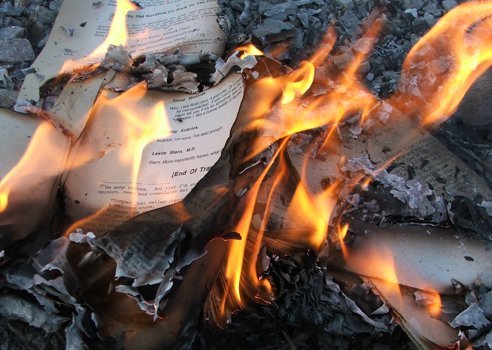Reading time: Less than 1 minute
This is my weekly installment of “writing about writing,” in which I scan the world to find websites, books and articles to help other writers. Today I discuss a blog post on defacing books by Austin Kleon….
When I was a university student, I learned the art of defacing my books. Opinions in the margins (whether my own opinions or those of experts). References to other works. Even, occasionally, doodles, when my mind wandered.
I lost the attitude that books were ‘precious’ and learned to view them, instead, as a place to store knowledge. For that reason, I quickly learned that a book covered in my scribblings was much more valuable to me than one that was not. Even if the marked up book wouldn’t sell for so much in the second-hand bookstore…
I thought back to those golden days, when I encountered a wonderful Austin Kleon blog post on the topic, “Is It Okay To Deface Books for Art?” In his long and thoughtful response to the subject, Kleon describes his own habit of making poems from old newspaper clippings.
Of course, as he observes, everyone understands newspapers turn into kitty litter box liners over night, so no one cares if you cut them up. But, somehow, books are different.
Still, as he puts it:
While I appreciate beautifully printed books and the fine art of bookmaking, I have become less and less interested over time as books as fetish objects to be worshipped for their inherent magical powers. There is a magic to reading, but it comes mostly from the energies of the reader. A book is dormant until the reader comes along to bring it back to life.
I also enjoyed the chance to explore the art of Brian Dettmer, a contemporary American artist known for his alteration of existing media — old books, maps, albums and cassettes — into new and striking pieces of visual art.
The image at the top of this post — a book burning — however, is not a form of defacing books I would ever support.
An earlier version of this post first appeared on my blog on Jan. 6/20.


